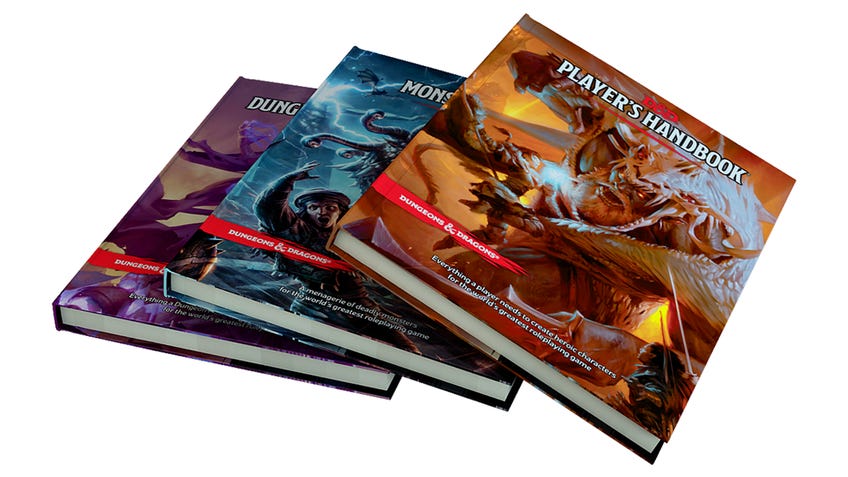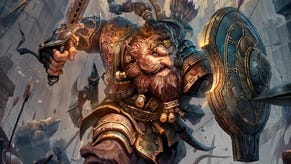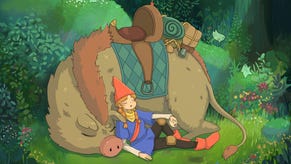GMs shouldn’t always break the rules in tabletop RPGs
Tend the rules.
Crack open the rules for your favourite roleplaying game and you’ll invariably find a paragraph or two, perhaps in a nice little text box, explaining that it’s your game. The writers will say that the game master, as the one running the show, shouldn’t be afraid to bend, break or even totally ignore the rules. On the whole, it’s good advice. Few things ruin a session faster than a GM who rigidly adheres to the rules as written at the expense of all else, and spending too long fumbling through a hefty tome looking for a specific ruling can disrupt your flow.
That said, changing the rules isn’t always the best route to take. After all, rules are what makes RPGs roleplaying games and not just improv or collaborative storytelling. Good advice endlessly repeated has a tendency to become dogmatic and a weak structure is just as bad as an inflexible one.
Rules act as a foundation for your game and should be altered with care. Designers write specific rules for a reason. Something as simple as counting every arrow in your quiver, as opposed to an abstract game mechanic or just hand-waving it completely, defines the flavour and texture of a game as much as any lore. Change enough and it won’t feel like the original game anymore. If that’s the case, why not save yourself a lot of work and just run something else instead?
Change enough and it won’t feel like the original game anymore. Why not save yourself a lot of work and just run something else instead?
It’s been a common occurrence recently, with a flood of new GMs looking to hack Dungeons & Dragons into shapes it really wasn’t meant to be in, when games that do exactly what they want already exist. You wouldn’t buy a three-bed semi and turn it into a meat-packing plant, so don’t try and run a military simulation campaign in the guns-blazing, time-travelling, magic and martial arts-infused game that is Feng Shui.
Other than the unnecessary time and effort involved, massively changing the rules runs the risk of disappointing your players. Trust is a hugely important element of roleplaying and a radical departure from expectations can be hard to recover from. You may be a capricious trickster god, but your players shouldn’t know that. House rules and modifications are fine, but you need to inform players in advance and discuss changes with them if you come across something you’d like to alter during play.

The mechanical aspect of character creation is a source of enjoyment for many players. It’s no fun making a character and suddenly realising that your cool powers are now irrelevant because the GM has completely replaced the movement rules. Even the most simulationist ruleset is going to be heavily abstracted, so players learn to adapt their characters and the tactics they use to the rules. Ripping the metaphorical carpet from under their feet can quickly spoil their fun.
Providing a consistent mechanical framework means your players can be confident that their successes and failures alike are theirs and theirs alone.
It can also be very unpleasant for players who aren’t neurotypical. Autistic folks, to use an example from personal experience, can be distressed by supposedly rules-based systems not functioning like they should. For an autistic player who is familiar with the rules and expects a given action to have a consistent mechanical result, a GM deciding to alter the rules on the fly can be genuinely upsetting.
It’s important to emphasise, especially in light of the preceding paragraph, that this isn’t about allowing the letter of the rules to trump the spirit that they were written in - a practice known as rules-lawyering, or the exploitation of game mechanics. It’s simply providing a consistent mechanical framework for your game, so your players can be confident that their successes and failures alike are theirs and theirs alone.
Making characters extremely overpowered is a frequent consequence of going seriously off-book without considering the implications. This isn’t necessarily a big problem, provided that the PCs’ power level suits the tone of your game, but you run the risk of your players running rampant or one particularly overpowered PC overshadowing the others. Countless words have been written on the subject of reigning in overpowered PCs, but the simplest solution is not to be in that situation in the first place. Individual rules don’t exist in a vacuum, so consider the implications of your changes. Giving a player a +1 bonus on rolls probably isn’t going to be a huge deal in a d100-based system, but will require some consideration if you’re rolling d20s. In a game that uses d10s, like World of Darkness, just that one point bonus will give a massive power increase - and should almost certainly be avoided.
Sometimes it can be best to trust that the folks who make your games know what they’re doing.
The customisability of RPGs is one of their greatest strengths, and tweaking things to your liking is a really fun part of being a GM - it can even lead to creating an entirely new game of your own. Game design, like any other set of skills, requires time, study and patience to master, and can be a huge boon to any GM, especially one creating their own campaigns and other game content. However, it’s in no way essential - you don’t have to be a game designer to run an RPG any more than you need to be an artist or an actor. Sometimes it can be best to trust that the folks who make your games know what they’re doing. If you do decide to alter the rules to better suit your game, take care with the changes you do make, and always involve your players in the process.










